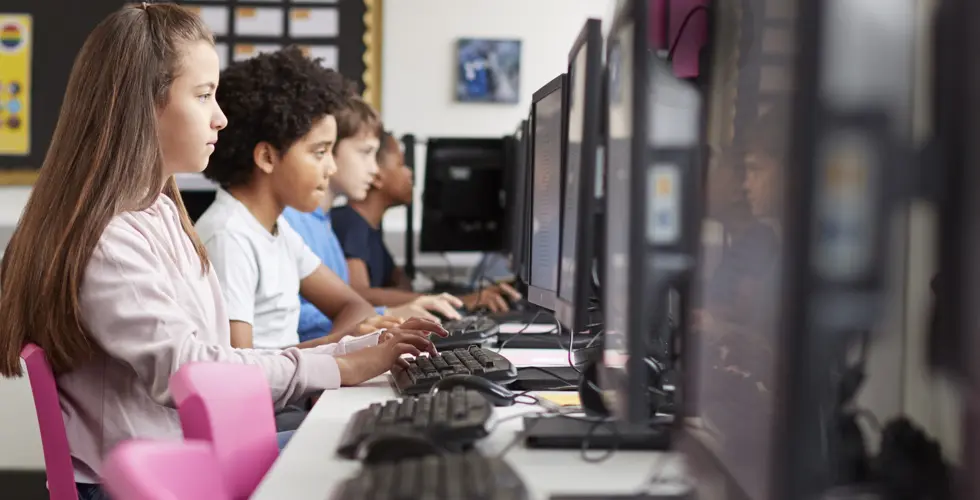
G.T. asks a great question on the Christian Libertarian FAQ:
It’s one thing for adults to be left to make their own choices and live with the consequences, but when it comes to children, does society not have certain responsibilities for their proper care (if parents are unable/unwilling)? For libertarians who believe that education should be privatized, how does this practically work for these “forgotten” children?
Candidly, if I knew how a market in X works in practice, an accurate and comprehensive answer would be the most valuable proof that statism would work. Knowing how things work in practice ahead of time is impossible. We can guess and offer possibilities, but if education were privatized, it would probably look very different from what we now expect. At the same time, we don’t have just theories or principles of economics to look to for answers on how education could work without the state. We have a history of markets with millions of examples of how goods and services “work in practice.” We also have a history of markets that show us how the poor are provided goods and services that in prior decades on the wealthy could afford or have access to. While it will always be true that the wealthy will have access to the best, since the advent of freed markets the poorest have had access to reliable and quality substitutes for those products or services. In the early 1990s, “car phones” seemed to be the envy of the wealthy, completely out of reach to the poorest. Cellular phones are now ubiquitous and nearly universally affordable. A computer used to cost thousands of dollars in 1980s money, but now are merely a few hundred dollars in today’s money. These are but a few examples.
Education is one of the most complex social phenomena throughout history because of its rather fundamental nature of life. The bare minimum of learning is for mere survival, and so broadly speaking, education has always existed where survival was necessary! Just as there have always been many ways to learn, there are many ways to acquire education—apprenticeships, schools, labor market, reading, to name just a few. The first thing to keep in mind with education is that what we usually think of as “education” today is relatively new. Schools as we think of them are a recent historical practice.
The most difficult endeavor in proposing a society that operates completely on the foundations of peaceful interactions is to imagine a world nearly upside down from today’s experience. Examples throughout history are full of those who objected to social change. Certain industries may thrive in new conditions and leave old industries obsolete, yet life continued and humanity adjusted. It moves on. And most of us are the better for it. But social change is not without its hurdles. The biggest one is opening the imagination of others who cannot see what ought to be done. This takes courage and perseverance. It doesn’t happen overnight.
For most who question the privatization model of education, the children who will presumably be “left behind” (i.e. they fail to get adequate education) are the focus of concern. Add to this the Christian responsibility to concern themselves with the wellbeing of what Jesus calls “the least of these,” and the question becomes a bit more important. If Christians advocate something that leaves the poor behind, it might need to be reconsidered.
A Honda Civic will get me to work just as well as an Aston Martin. An iPad will send emails, but so will the cheapest tablet on the market that costs a fraction of the price. You can buy expensive cabinets made of exquisite wood shipped from exotic locations around the world, or you can shop at IKEA. Both add functionality to your kitchen. Markets have a proven track record of providing reliable and socially acceptable goods and services for those who have very little. In many areas, even those who were very wealthy could not afford such things a decade prior.
Once we keep in mind that education is not just “schooling,” we can begin to imagine ways that educating the poorest in a free society is not just a prediction but is feasible.
The question isn’t really about who owns and operates the school system. The question is, “What kind of ‘system’ do we need in order to see access to education to as many people as possible?” Do we even need a formal system, or does an emergent order of educational providers make more sense (the Hayekians among us would have plenty to say here!)?
It is often stated that it is the job of “the church” to assist the poor and not the job of anyone else. But for the same reason I reject the idea that “schooling” equals “education,” I would also reject the idea that “Church” equals “institutionalized Christianity.” Those who follow Jesus should be pushing the way forward that helps those in need, by whatever peaceful means necessary. That could mean starting a school funded by donations from those who have extra to give. That could mean starting a business that provides apprenticeships to the poor in exchange for inexpensive labor. That could mean working in the political system to privatize schools as we now know it. It could also mean working toward dismantling the current system so that it reflects a less institutionalized approach to educating.
A remaining concern to address is the neglectful parenting that can happen, leaving children “behind” the rest of society. What I would caution against is considering “society” as an entity with a purpose as if it were an individual. If by society you mean “the people living in society,” consider this: when a society is ready and willing to “go private” with education (face it, that’s a long way off!), that society will be ready to take care of those who are being neglected without a need for a federal or state institution to do so.
(UPDATE: Mises.org Wiki has a great page called Private Alternatives to Public Goods.)

Articles posted on LCI represent a broad range of views from authors who identify as both Christian and libertarian. Of course, not everyone will agree with every article, and not every article represents an official position from LCI. Please direct any inquiries regarding the specifics of the article to the author.
Did you read this in a non-English version? We would be grateful for your feedback on our auto-translation software.
), //libertarianchristians.com/wp-content/plugins/smartquizbuilder/includes/images/template6-latest.jpeg))

), https://libertarianchristians.com/wp-content/plugins/smartquizbuilder/includes/images/template6-latest.jpeg))








































), https://libertarianchristians.com/wp-content/plugins/smartquizbuilder/includes/images/template6-latest.jpeg))
), https://libertarianchristians.com/wp-content/plugins/smartquizbuilder/includes/images/template6-latest.jpeg))
), https://libertarianchristians.com/wp-content/plugins/smartquizbuilder/includes/images/template6-latest.jpeg))





*by signing up, you also agree to get weekly updates to our newsletter
Sign up and receive updates any day we publish a new article or podcast episode!